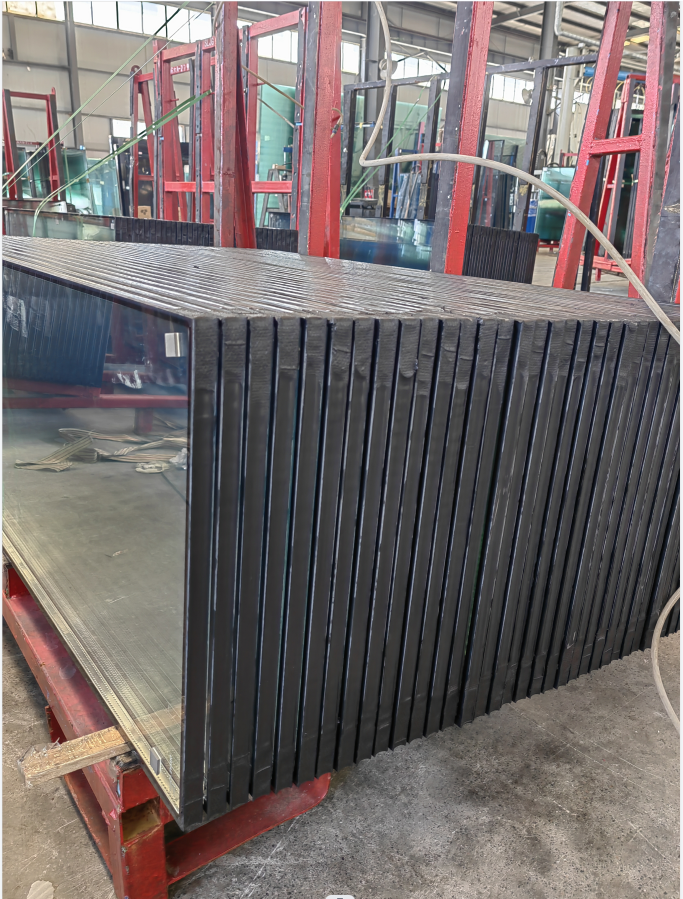NEWS CENTER
|
Some Unique Use of Insulated UnitsLanjing Glass Company is specializing in Insulated Glass . Our window pane or Insulated Glass units can be found in both residential and commercial constructions. Insulated Glass is a combination of two or more pieces of glass separated by air spacer. Insulated Glass units improve thermal performance. Very dry air is a poor conductor of thermal heat, and an Insulated Glass provides excellent thermal insulation. It is also reduces interior condensation in cold climates. Being the market leader in manufacturing window pane, we can say that it is ideal product for windows, storefronts and curtain walls. In this article we want to show you where insulated glass can be used. 1) Solar Control Units The increased use of glass in architecture today makes it imperative to consider the comfort of a building’s occupants. Solar control glass units can be an attractive feature of a building whilst at the same time minimizing, or even eliminating the need for an air conditioning system, reducing running costs of the building and saving energy. In hot climates, solar control glass units can be used to minimize solar heat gain and help control glare. In temperate regions, it can be used to balance solar control with high levels of natural light. Solar control glass units can be specified for any situation where excessive solar heat gain is likely to be an issue, eg. large facades, glass walkways, atria and conservatories. All products are available in toughened or laminated form for safety and security requirements, and can be combined with other benefits such as noise control. How it works Glass manages solar heat radiation by three mechanisms: reflectance, transmittance and absorptance. These are defined as follows: Reflectance – the proportion of solar radiation reflected back into the atmosphere. Direct transmittance – the proportion of solar radiation transmitted directly through the glass. Absorptance – the proportion of solar radiation absorbed by the glass.
2) Thermal Insulation Glass Over 25% of the heat from homes and public buildings escapes through the windows so, with the rising costs of energy and increasing environmental awareness, more emphasis than ever is being placed on ways to save energy in all types of domestic, commercial and public buildings. Government regulations specifying minimum requirements for the energy efficiency of new buildings are being gradually tightened and at the same time, emphasis is being placed on the importance of improving existing housing stock. Requirements for thermal insulation in refurbishments such as replacement windows have also been tightened and schemes such as the Green Deal introduced to encourage homeowners to improve efficiency. Energy-efficient glass can play an important role in achieving these targets for thermal insulation of homes. By replacing single glazed window glass with thermally insulated windows containing Bear Glass double glazing units, the amount of energy lost can be reduced by up to 75% and heating bills lowered by up to 20% each year. 3) Fire Protection Glass Units We offer a wide range of fire-resistant glass options with varying levels of protection to suit your needs. Protection levels are measured in defined time periods (30, 60, 90, 120 and 180 minutes) and in terms of either integrity and insulation or integrity only, as designated by the European Standards. Today modern architecture favors transparency even far beyond the facade: the architects prefer natural light and open spaces to determine the design of large buildings right down to their structural core. Wherever these “open” concepts meet local construction and fire safety requirements for the protection of human life and property, transparent fire-resistant glazing comes into play. This allows modern, bright and open space design, as well as safety to be combined in a variety of multi-functional systems. 4) Noise Control No matter where it originates, from railways, aircraft or factories, noise is all around. Future trend research suggests that traffic and noise in general will only get worse. The careful and considered selection of glass can be crucial in helping to reduce noise level and meet noise requirements. How it works The highest noise insulation is achieved using an acoustic laminated glass. Glass controls noise by: Reflecting the noise back towards the source, and Absorbing the noise energy within the glass. We can improve the sound insulation of glass in different ways – increasing the thickness of the pane, using laminated glass on its own or within an Insulating Glass Unit (IGU) – the larger the gap between the panes, the better the insulation. How it works The highest noise insulation is achieved using an acoustic laminated glass. Glass controls noise by: Reflecting the noise back towards the source, and Absorbing the noise energy within the glass. We can improve the sound insulation of glass in different ways – increasing the thickness of the pane, using laminated glass on its own or within an Insulating Glass Unit (IGU) – the larger the gap between the panes, the better the insulation |




